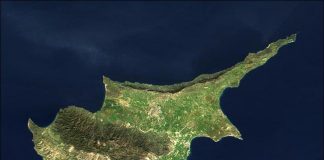EU
Galbraith on Greece, Trump, Europe and US Dollar
"The issue is whether a break (of Greece) with Europe would make things better (for Greece). And that is an issue that has to...
Without Russia it’s only Hobson’s choice for Cyprus
*Aris Petasis and *William Mallinson
As the latest neurotic and frenetic round of negotiations about illegally occupied Cyprus is planned to continue in March 2017,...
Is Greece the pawn in Trump’s game against the Eurozone and...
* Τhis article was published by the Cyprus News Agency and it was translated into English by Wayne Hall
US President Donald J. Trump
February 6,...
Trump, a friend of Schäuble? He wants Greeks outside Euro...
Ted Malloch, U.S. President Donald Trump’s pick to be his Ambassador to the European Union went on the record during a Bloomberg interview, suggesting...
Reminding History to explain Politics – the case of Cyprus
As we explained in a previous article posted here a post-modern, still very real coup d' etat is now executed, with the aim of...
L ’Euro contre l’Europe
par Jacques Sapir
4 Novambre 2016
L’Union européenne traverse aujourd’hui crise majeure. Il s’agit d’une crise économique mais aussi d’une crise d’identité. A l’origine de cette crise...
The alternative proposal for the Cyprus problem
Andreas Theophanous*
December 2016
The alternative proposal for the Cyprus problem
The narrative of the recent years was that any solution of the Cyprus problem based on...
“Liberal” European Elites for Authoritarianism and Cold War
In the aftermath of the November 8 US presidential election, sections of the Democratic Party, the intelligence services and the media have intensified unsubstantiated pre-election claims that the Russian government hacked into Democratic Party email servers to undermine the campaign of Hillary Clinton.
Grèce : Les banques sont à l’origine de la crise
Cette étude démontre que la crise grecque qui a éclaté en 2010 est d’origine bancaire privée. Elle n’est pas le résultat d’un excès de dépenses publiques. Le soi-disant plan d’aide à la Grèce a été conçu pour servir les intérêts des banquiers privés et ceux des pays qui dominent la zone euro. L’adoption de l’euro par la Grèce a joué un rôle important dans les facteurs qui ont contribué à la crise. L’analyse contenue dans ce texte a été présentée à Athènes le 6 novembre 2016 lors de la réunion de la Commission pour la vérité sur la dette publique grecque.
Building Totalitarianism in Europe – The Last Coup of Victoria Nuland
Victoria Nuland, the US Assistant Secretary of State, did not spend much time and energy with Christmas and New Year celebrations this year. She has another very urgent and pressing problem to solve, before leaving the State Department, and this is the “Cyprus conflict”. The way she wants to solve this conflict is by transforming a second member of the EU, after Greece, into a protectorate. As the proposed solution for Cyprus is higlhy unstable, powers outside the EU will be provided also with a bomb inside it, that is with the possibillity of provoking a Bosnian-type conflict inside, not outside EU borders.









